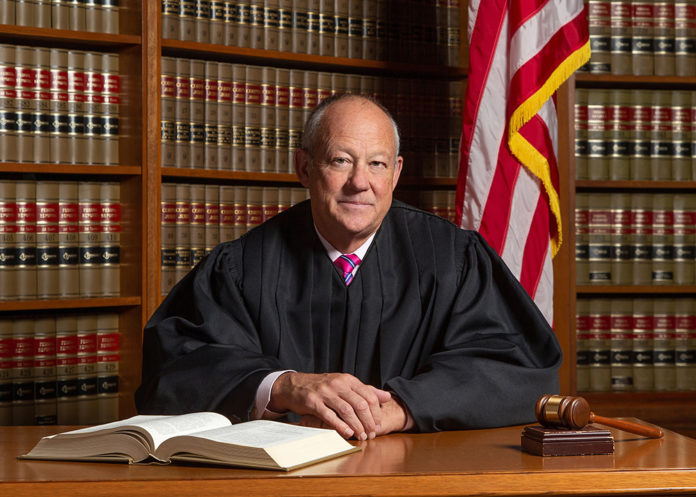
The Judicial Conference of the U.S. is celebrating its 100th anniversary this year with a Colorado connection.
According to the U.S. Courts, the conference meets twice a year at the Supreme Court building in Washington, D.C. and looks into administrative and policy issues impacting the federal court system. The conference then makes recommendations to Congress involving legislation linked to the judicial branch. The conference also looks over budgets, courthouse construction, staffing, emergencies, judgeships and rules of procedure.
It was initiated by former President and Chief Justice William Howard Taft in 1922. There’s 26 judges on the conference with Chief Justice John Roberts serving as the presiding officer. The conference works by having policy issues funneled into a committee structure and then recommendations are made to the Judicial Conference where they are voted on.
“Heretofore, each judge has paddled his own canoe and has done the best he could with his district,” Taft said to the American Bar Association in 1921. “He has been subject to little supervision, if any … [H]e is likely to cooperate much more readily in an organized effort to get rid of business and do justice than under the ‘go-as-you-please’ system of our present federal judges.”
After his term as chief judge ended recently, 10th Circuit Court of Appeals Judge Timothy Tymkovich’s role on the conference closed out. In order to be a member, you need to fit into certain categories of judges which could include being the chief judge of a circuit court of appeals. Tymkovich has returned to his role as a circuit judge.
Tymkovich, who worked on the conference for seven years, was at the latest conference meeting in September and was the only Colorado chief judge to ever serve on it. Tymkovich worked on the Committee on Judicial Resources which deals with human resources, staffing, the need for additional judgeships and the budget.
“Many of them have become friends over the years and it is a chance to meet the court leaders from the other circuits in a setting that is conducive to having some conversations about how they do business,” Tymkovich said. “It’s really a great opportunity to learn from the successes or maybe the failures from other circuits on various matters and different approaches.”
Tymkovich said one of the bigger issues the Judicial Conference dealt with recently is updating and modernizing judicial codes of conduct and expanding the protections for judges, law clerks and court staff.
“We’ve increased the ability of employees to obtain information about employee rights and file complaints where they feel … they’ve been [a] victim of some violation of the codes of conduct,” he said, adding one of their recommendations was to expand those requirements to the federal public defender program which the council also oversees.
Tymkovich continued, saying a lot of their decisions are relatively mundane whether it’s plans for the judiciary, changes to filing requirements or hearing from members of Congress or the U.S. Attorney General’s office. He added the federal courts did a great job handling the pandemic.
“I think coming out of the pandemic the future holds some questions [on] how the courts are going to continue to build on lessons learned from the pandemic and how we can use technology like other institutions to make access to the courts easier and less costly,” Tymkovich said.
As for the 10th Circuit, it’s unique in what it brings to the table. Tymkovich explained the circuit covers a mix of the high plains and Mountain West, an international border, public lands, national parks and a substantial number of Native American reservations.
“So I would say that we have a pretty unusual and diverse mix of cases involving business, the energy economy — both new and old. We [have] crime and immigration arising from our international border, we have death penalty states,” Tymkovich said. “We’ve had some major, major cases involving Indian reservations in the state of Oklahoma and then a large run of environmental matters involving our public lands, national parks and national forests.”
Taking over for Tymkovich as the new chief judge of the 10th Circuit is Judge Jerome Holmes who was appointed to the 10th Circuit by President George W. Bush in 2006.
“I think it’s nice to have [a] change in these leadership positions and I know my successor’s going to do a great job,” Tymkovich said.
Holmes also had great praise for Tymkovich.
“Judge Tymkovich has displayed remarkable leadership and sound judgment as Chief Judge in helping the court to navigate the difficult and unpredictable challenges presented by the COVID-19 pandemic,” Holmes said in a press release. “Our court has emerged from the worst of this difficult period as strong as it has ever been. My goal is to simply build on the sterling work of Judge Tymkovich and his predecessor chief judges.”

